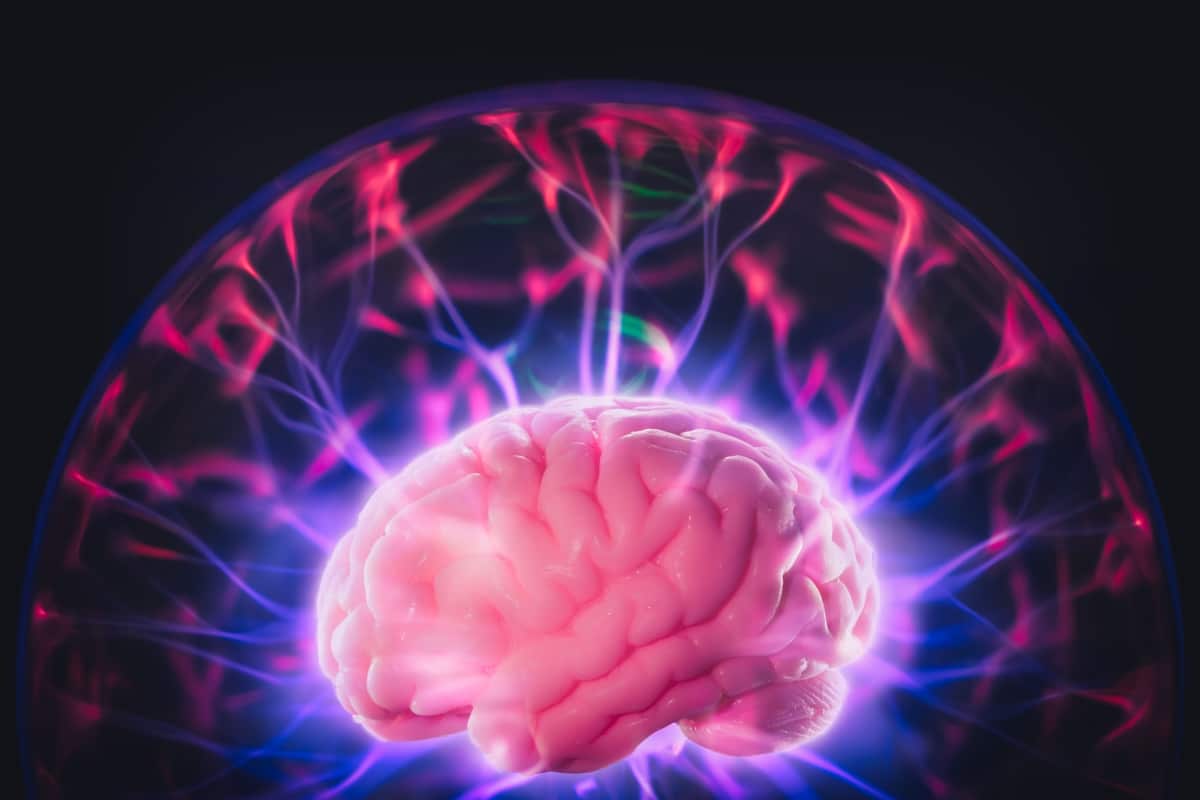Today we’re sharing with you our favorite tips to biohack your life and eliminate unwanted stress. And they couldn’t come at a better time! During these days of unprecedented events, lots of people are experiencing not only more stress, but new kinds of stress every day.
Mental Health Month
This month also marks the 71st Mental Health Month, as observed by Mental Health America. We all face challenges that can impact our mental health, and 1 in 5 of us will experience a mental illness during our lifetime.
The events of the last couple of months have shined a particularly bright light on the importance of taking care of our mental health. During a time when our physical health is at the forefront of our minds, our mental health needs to be treated with the same care. In fact, many of us are feeling like our mental performance and health is suffering due to stress.
Before we discuss what we can do to manage our stress levels, we’ll explore exactly what stress is.
Understanding Stress
When you hear the term stress, you might associate it with something like how you feel being under a tight deadline or when you’re stuck in traffic. This is known as acute stress which we’ll discuss, but we’ll also share the other types of stress and how they can affect you.
Acute stress
The most common form of stress is acute stress. Reactive thinking to a perceived threat (including a specific phobia like spiders or clowns) usually causes it. This perceived threat can be either physical, emotional, or psychological. Acute stress can be associated with varying forms of emotional and physical distress. These include physical symptoms like stomach problems, headaches, and an increased heart rate.
Episodic acute stress
People who experience frequent bouts of acute stress could be diagnosed with episodic acute stress disorder. The extended frequent over-arousal or extended hyper-arousal of your nervous system can lead to ongoing physical and emotional anguish. Episodic acute stress is also associated with more obvious or serious physical and mental symptoms. These include extreme emotional distress, high blood pressure, irritable bowel syndrome (IBS), and even immune system compromise.
Chronic stress
Chronic stress is the type of stress that lasts over time, and it can lead to irreversible physical and mental damage if left untreated. This can include impaired cognitive performance, heart disease, and many other serious side effects. Things like negative childhood experiences or a traumatic event later in life could cause chronic stress.
A certain level of stress is inevitable in life. But if left unmanaged, it can have dangerous side effects on not only our mental health, but our physical health, as well.
While we shared that 1 in 5 people will experience a mental illness during their lifetime, the American Psychological Association shares another startling statistic: "more than three-quarters of adults report physical or emotional symptoms of stress, such as headache, feeling tired or changes in sleeping habits."
Many people are experiencing more stress than usual as they struggle to cope during this global pandemic. For tips on navigating emotional hardship, have a look at this blog post.
Meet Biohacking
How can you counteract the effects of stress, improve sleep quality, boost your mood, and improve your overall health? Many people turn to biohacking. You might also hear of biohacking as DIY biology. These terms refer to the ways you can "manipulate" your brain and body to perform at its best.
It’s important to remember that effective biohacking is different for everyone. What works for one person won’t necessarily work for the next. Though it requires some level of self-experimentation and patience, it’s worth the effort. There are also some virtually effortless ways to biohack your life and reduce unwanted stress. We'll get to those in a bit.
Our Top Tips to Biohack Your Life & Eliminate Unwanted Stress
In addition to eliminating unwanted stress, many of these biohacks have additional health and wellness benefits.
Blue light blocking
You may have noticed your sleep quality decreases as your stress levels increase. It can also become increasingly difficult to get a good sleep if you’re experiencing frequent or extreme stress. Luckily, there are biohacks meant to improve your quality of sleep. At the same time, they help to ensure you’re well-equipped to manage stress. One such biohack that can improve sleep quality AND stress levels is called blue light blocking.
Blue light blocking glasses filter out the blue and green wavelength color spectrum from both artificial and natural light. They're meant to be worn while looking at screens or under artificial light, particularly at night. In addition to protecting eye health, blue light blocking glasses may also improve your sleep quality and your circadian rhythm.
Intermittent fasting
Intermittent fasting isn't a new concept, but it's experiencing a recent surge in popularity. The benefits of intermittent fasting are said to be vast. They range from everything from fat and weight loss to increased energy and lower blood sugar levels.
It can also promote mental clarity and cognitive function, both of which play powerful roles in reducing or managing stress levels. When our mind is free of clutter, we’re better able to concentrate, focus, and even cope with stressors.
Specific plans vary, but intermittent fasting entails limiting the hours of the day (or the days of the week) that you consume food. The three common methods are known as alternate-day fasting, periodic fasting, and daily time-restricted feeding.
Alternate-day fasting: Simply put, this type of intermittent fasting involves eating what you want one day, fasting the next, and so on.
Periodic fasting: This type of fasting can mean not eating for one or two whole days, and eating normally the following days of the week.
Daily time-restricted feeding: This fasting method is the most common in today's world. A common example is what's known as 16:8 fasting. It means fasting for 16 hours of the day and eating normally for the other eight. Another biohacking advantage of this type of fasting is that it's said to leverage circadian rhythms.
Bulletproof coffee
Dave Asprey is the Father of Biohacking. On his blog, he shares how certain hacks, including mindfulness, breathwork, and light therapy can increase cognitive function, reduce stress, lose fat, and increase productivity.
He's also the creator of Bulletproof Coffee. This is a recipe he developed with a unique blend of coffee mixed with healthy butter and Medium Chain Triglycerides (MCT) oil. In addition to the energy-boost and other positive effects of caffeine, many people credit Bulletproof Coffee with increased mental clarity and alertness.
According to Asprey, "The core definition (of biohacking) is changing the art and science of the environment around you and inside of you so that you have full control of your biology."
And when it comes to maximizing your own body's ability to control and manage stress, stimulating the Vagus nerve can't be overlooked.
The Vagus nerve
The Vagus nerve is the longest nerve of the autonomic nervous system. The autonomic nervous system or ANS is the system that regulates a variety of body processes that take place without conscious effort. This nerve's strength is called "vagal tone." When vagal tone is low, it links to chronic health conditions, mood problems, inflammation, and even mental health issues.
We know there's a lot more to discuss about the nervous system and the Vagus nerve. Want to dive deeper on the topic? Have a look at this post.
Benefits of Vagus nerve stimulation (VNS)
Researchers are discovering there are many benefits of vagus nerve stimulation that have a powerful impact on improving the symptoms of a variety of disorders. In fact, evidence shows stimulating and strengthening the vagus nerve can reduce the symptoms associated with depression and the effects of anxiety.
Remember how we mentioned there's a virtually effortless biohacking method to reduce stress levels?
Ear-based vagus nerve stimulation is a form of transcutaneous VNS (tVNS). It has been successfully studied in numerous individuals for a variety of purposes. These include improving mood, sleep, focus and cognition, and athletic performance recovery.
That's why stimulating the Vagus nerve is one of our top tips to biohack your life and reduce unwanted stress. In the past, effectively stimulating the Vagus nerve required more invasive measures. But today, it's easier and more accessible than ever thanks to Xen by Neuvana technology.
Interested in learning more about stimulating the Vagus nerve? Take a look at this video on vagus nerve stimulation.
Xen by Neuvana
Xen is a wellness technology designed to gently deliver electrical signals through specialized earbuds to your Vagus nerve. Vagus nerve stimulation sends a message to the brain to generate calming sensations in the body. This helps to promote a more relaxed state.
This technology may also make stress more manageable. At the same time, it can help your body recover from stressful events. It could also make you feel less anxious and while helping your body cope with the effects of stress.
An app on your phone controls a handheld device that connects to the Xen by Neuvana Headphones. The device then generates an electrical current to stimulate the vagus nerve. It's "virtually effortless" because it can all be done while you're listening to music or sounds and going about your day.
Do you have more questions about biohacking vagus nerve stimulation and Xen by Neuvana technology? Visit our FAQ page where we cover what it feels like to use Xen headphones when to use this technology, and much more.
Shop the entire Xen by Neuvana collection here.
If you enjoyed this post, you won't want to miss these either:
People Who Can Benefit from Wearing Neuvana Stress-Reducing Earbuds






